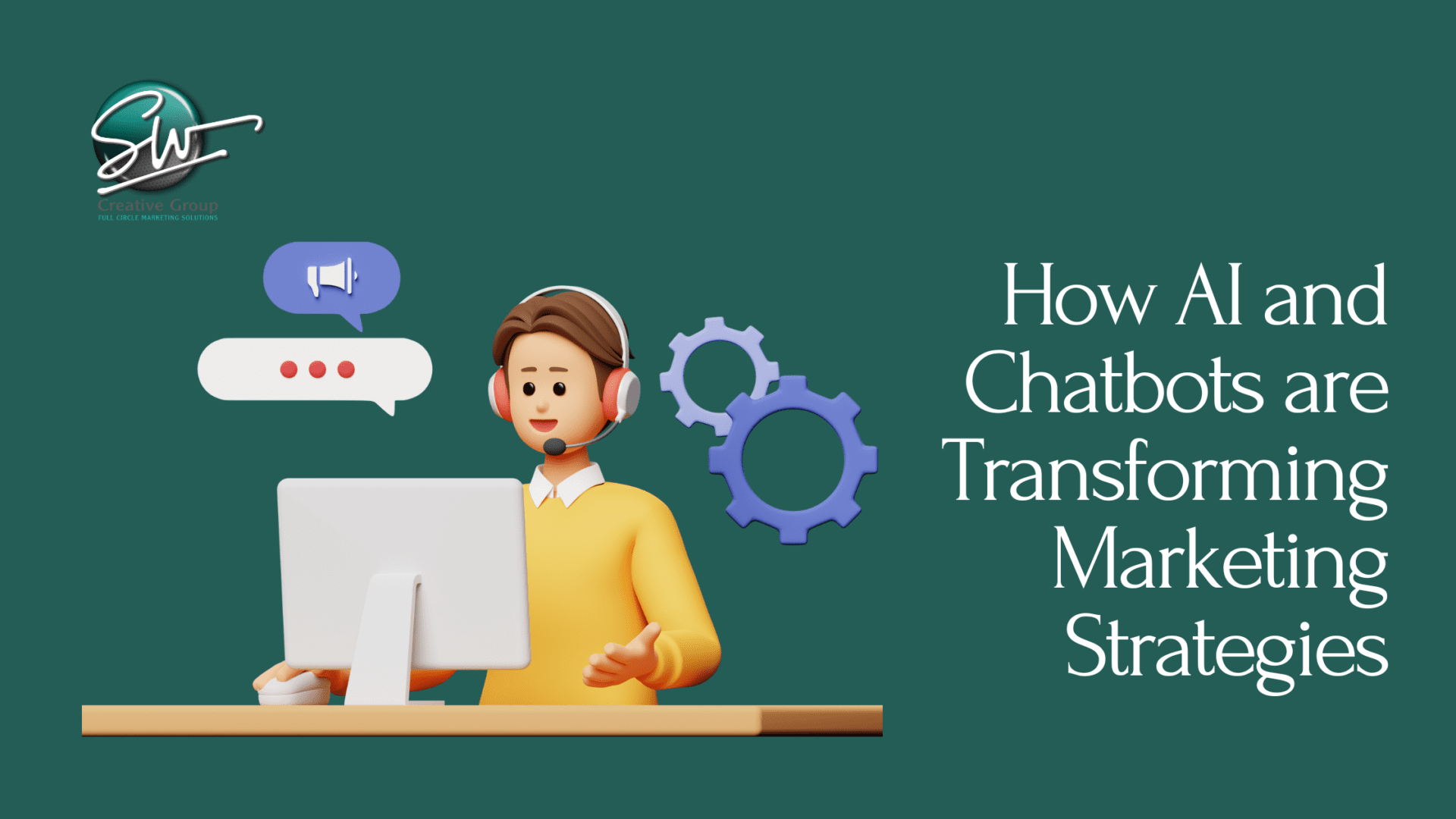- AI and chatbots are transforming marketing by automating tasks, personalizing customer interactions, and improving operational efficiency.
- AI analyzes data to enable data-driven decision making, automation of repetitive tasks, and personalized customer engagement through tools like chatbots.
- Despite challenges, AI and chatbots will continue to evolve, with trends including voice assistants, predictive decision-making, and even more sophisticated chatbots.
In modern organizations, AI-powered systems are stepping in to handle tasks with greater efficiency and accuracy. One of the most visible and impactful uses of AI today is in customer interactions, where chatbots are revolutionizing the way businesses engage with their audiences. What started as basic, rule-based scripts has evolved into highly sophisticated virtual assistants capable of understanding natural language, responding intelligently, and learning from interactions.
These AI-driven tools are now being used across industries, improving marketing efficiency and transforming customer experiences.
The Role of AI in Modern Business
AI has become a powerful tool that helps businesses make smarter decisions, optimize operations, and improve customer engagement. From predictive analytics to process automation, AI-powered solutions are driving efficiency in ways that were once thought impossible.
One of AI’s biggest contributions to business is its ability to process and analyze vast amounts of data in real time. Companies use AI to identify trends, forecast demand, and make data-driven decisions with greater confidence. In finance, AI algorithms detect fraudulent transactions within seconds, protecting customers and businesses alike. In marketing, AI helps brands tailor campaigns based on consumer behavior, leading to more personalized interactions and better results.
Beyond analytics, AI also automates repetitive tasks. In supply chain management, AI-driven systems monitor inventory levels, predict shortages, and optimize distribution routes. In customer support, AI assists human agents by handling common queries, freeing up employees to focus on complex issues that require a human touch. These capabilities help businesses operate more efficiently, saving time and resources.
Chatbots as a Game-Changer in Customer Engagement
The way customers interact with brands has shifted dramatically, and chatbots are at the center of this transformation. Unlike traditional customer service models that rely on phone calls or emails, chatbots provide instant, round-the-clock support without requiring human intervention.
AI-powered chatbots can handle a wide range of customer inquiries, from answering frequently asked questions to assisting with transactions. Many companies use them on their websites, mobile apps, and social media platforms to improve accessibility. In e-commerce, chatbots guide customers through the buying process, recommending products based on past purchases and answering questions about shipping and returns.
What sets modern chatbots apart from earlier versions is their ability to understand context and respond conversationally. Thanks to advancements in natural language processing (NLP), chatbots can interpret customer intent, detect emotions, and provide responses that feel more natural and human-like. This has made them an invaluable tool for businesses looking to offer quick and personalized support without overwhelming their customer service teams.
AI Chatbots in Marketing and Sales
The combination of AI and chatbots is reshaping how companies approach marketing and sales. By analyzing customer data, AI helps brands create highly personalized campaigns that resonate with their audience. Instead of relying on broad, one-size-fits-all advertising, businesses can now craft targeted messages based on individual preferences and behaviors.
Chatbots, in particular, are playing a growing role in sales and customer retention. Many businesses use AI-powered chatbots to engage website visitors, answer product-related questions, and even upsell or cross-sell items based on browsing history. In real estate, for example, chatbots assist potential buyers by providing property listings tailored to their preferences. For example, they help customers find the right size, color, or style before making a purchase on retail sites.
By integrating AI and chatbots into marketing and sales efforts, companies can create seamless and engaging experiences that drive conversions and build long-term customer relationships.
Automating Marketing Operations with AI
Beyond direct sales, AI-driven marketing tools analyze customer interactions to predict future buying behavior. Businesses use this data to refine their strategies, send automated follow-ups, and nurture leads effectively.
This level of automation ensures that businesses remain engaged with potential customers without requiring constant manual effort. AI-powered platforms can schedule social media posts, segment email lists, and even generate personalized content tailored to specific audience segments. By leveraging AI-driven automation, companies can streamline marketing workflows and allocate resources more efficiently.
Another major advantage of AI in marketing automation is the ability to optimize ad campaigns in real time. AI algorithms analyze ad performance data, adjust targeting parameters, and allocate budgets dynamically to maximize ROI. This minimizes wasted ad spend and ensures that marketing efforts are directed toward the most promising leads.
AI-Driven Personalization and Customer Experience
One of AI’s biggest strengths is its ability to personalize interactions at scale. Businesses can now tailor experiences based on customer preferences, past behavior, and real-time interactions.
Streaming services like Netflix and Spotify use AI to recommend content based on viewing and listening habits. Retailers suggest products based on browsing history, purchase patterns, and even seasonal trends. These personalized experiences create stronger customer relationships and drive repeat business.
Chatbots also contribute to this level of customization. Unlike traditional customer service models that treat every inquiry the same way, AI-driven bots adjust their responses based on the user’s previous interactions. A chatbot assisting a returning customer may suggest products that complement their past purchases, while a first-time visitor might receive guidance on navigating the website.
Personalized AI-driven customer experiences aren’t limited to online interactions. Brick-and-mortar businesses are incorporating AI to offer tailored recommendations in-store. Some retailers use AI-powered kiosks to provide product suggestions, while restaurants use AI to remember past orders and suggest new menu items based on customer preferences. This kind of personalization makes customers feel valued and increases loyalty.

Overcoming Challenges of AI and Chatbot Integration
Businesses must navigate technical limitations, customer skepticism, and operational adjustments to make AI-driven solutions work effectively.
1. Accuracy and Data Limitations
AI systems depend on large datasets to function effectively, but if the information is outdated, biased, or incomplete, the results can be unreliable. Chatbots, for example, may misinterpret customer queries, leading to frustration instead of solutions. Businesses can tackle this by continuously refining AI models, updating datasets, and integrating human oversight to catch errors before they impact users.
2. Customer Trust and Adoption
While AI-powered tools offer convenience, some customers remain hesitant to engage with automated systems, especially when dealing with financial transactions or personal information. Transparency plays a major role in overcoming this hesitation. Businesses that clearly communicate when AI is being used and provide the option for human assistance when needed help customers feel more comfortable engaging with these systems.
3. Integration with Existing Systems
Many companies rely on legacy systems that don’t easily connect with AI-driven tools, making implementation a challenge. Upgrading infrastructure takes time and resources, and if not planned properly, it can disrupt operations. A phased approach, starting with small AI applications before scaling up, allows businesses to identify and fix compatibility issues without overwhelming their workflows.
4. Security and Compliance Risks
AI-powered chatbots process large amounts of sensitive data, making them potential targets for cyber threats. Strong security measures, such as encryption and access controls, help protect customer information. Businesses in regulated industries like healthcare and finance must also align AI use with industry standards to remain compliant. By prioritizing security, companies can leverage AI while minimizing risks.
The Future of AI and Chatbots
The role of AI and chatbots in business is only expanding. As technology advances, these tools will become even more intelligent, responsive, and integrated into everyday operations.
One emerging trend is the use of AI-driven voice assistants. Businesses are increasingly incorporating voice technology to provide hands-free customer service, streamline workflows, and improve accessibility. Virtual assistants like Amazon Alexa and Google Assistant are already being used for shopping, banking, and appointment scheduling.
Another development is the growing use of AI in predictive decision-making. Businesses are using AI models to anticipate market shifts, consumer behavior, and even supply chain disruptions. This proactive approach allows companies to adapt to changing conditions faster than ever before.
Chatbots are also expected to become more advanced. With improvements in natural language processing, future chatbots will be able to hold more meaningful and human-like conversations. They’ll be able to recognize emotions, adapt to different communication styles, and provide even more accurate responses.
Furthermore, AI-driven visual search and augmented reality (AR) chatbots will revolutionize online shopping experiences. Customers will be able to upload images of desired products, and AI will find the best matches across various online stores. AR chatbots will allow users to visualize products in real-world settings before making a purchase.
How SW Creative Group Can Help
At SW Creative Group, we specialize in AI-driven marketing strategies that help businesses streamline operations and improve customer interactions. Here’s how we can assist you!
- AI-Powered Chatbots: We develop and integrate intelligent chatbots that handle customer inquiries, bookings, and support, ensuring a seamless experience for your audience.
- Personalized Marketing Automation: Our AI-driven tools analyze customer data to deliver targeted messaging that increases engagement and conversions.
- Data-Driven Insights: We leverage AI analytics to track performance, optimize campaigns, and refine your strategy for better results.
- Seamless Integration: Whether you’re starting fresh or upgrading existing systems, we help implement AI solutions that align with your brand’s goals and workflow.
Every business has unique needs, and we tailor AI strategies that drive growth, efficiency, and customer satisfaction.
Struggling to integrate AI and chatbots into your business? Let our team at SW Creative Group help you navigate the process with smart solutions that drive results. Contact us today and let’s transform your customer experience together!

